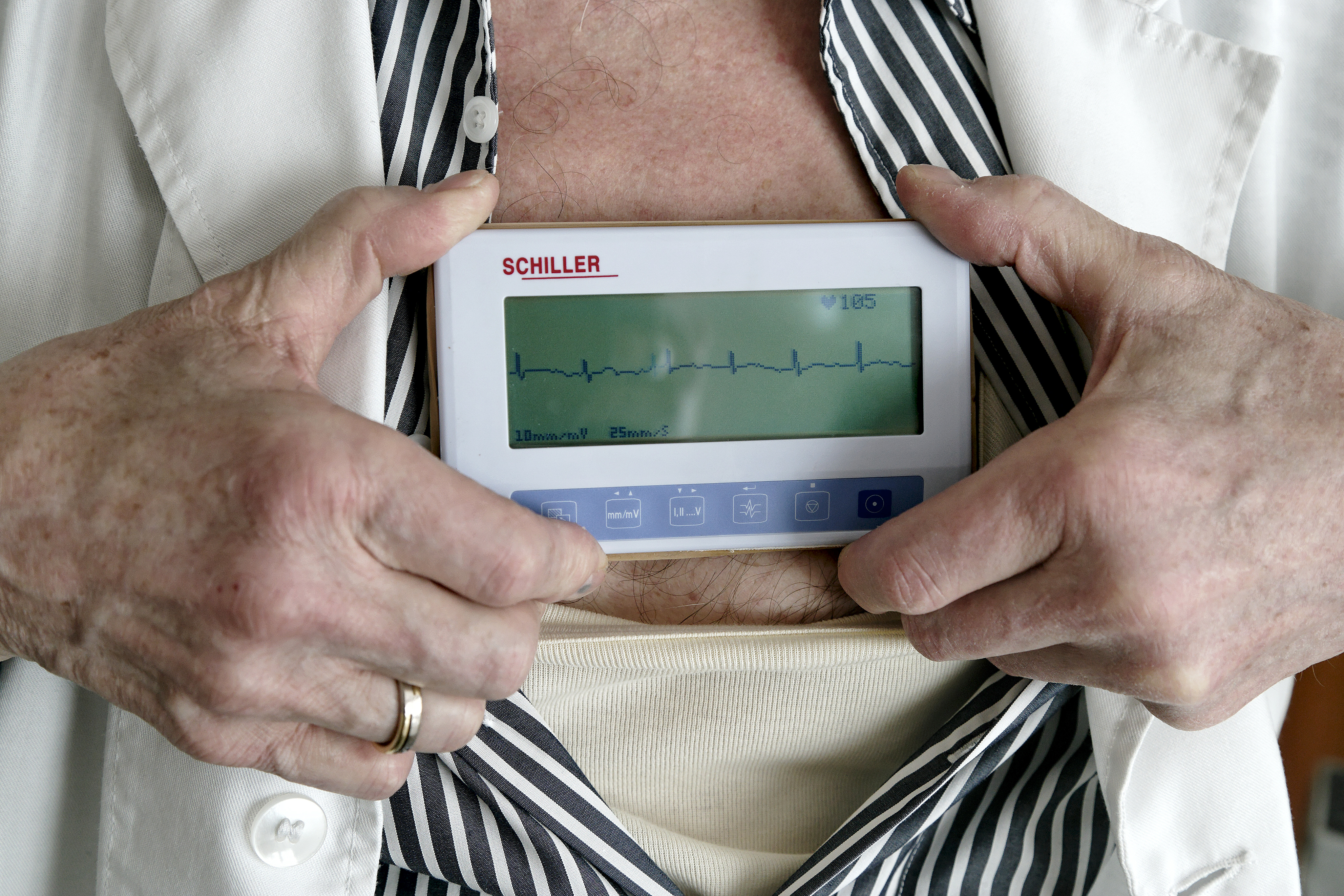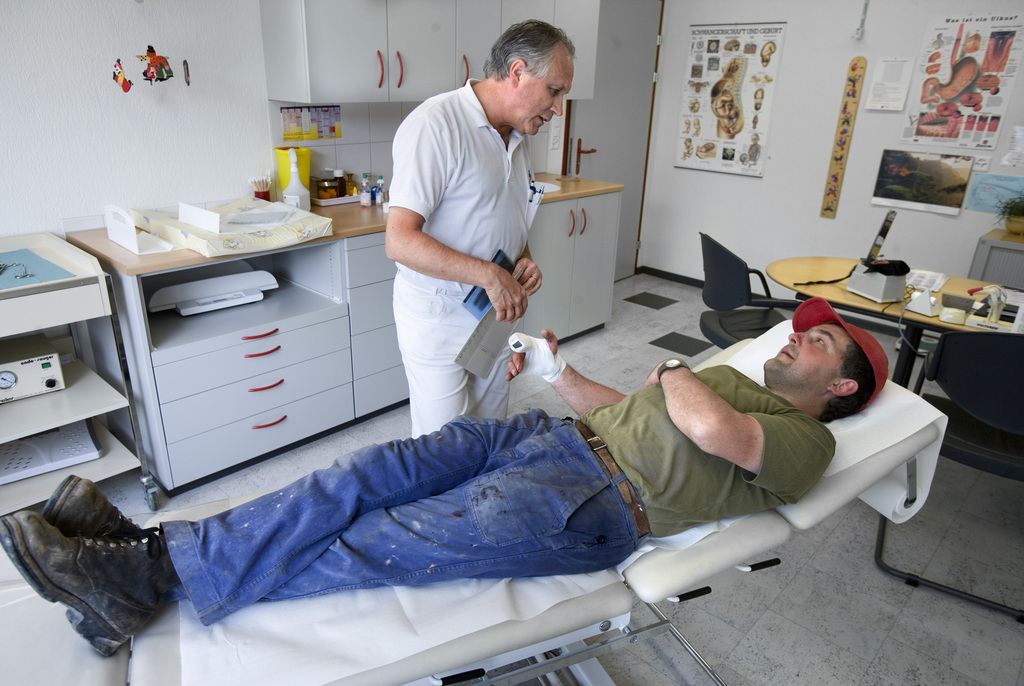Hospital doctors bend the rules regularly

Doctors in Swiss hospitals work too much, according to a survey commissioned by the Association of Swiss Assistant and Senior Physicians. The study has found that nearly 70% of 3,300 physicians surveyed don’t comply with at least one condition of Swiss labour law.
A law in force since 2005 limits assistant and senior physicians working full-time in hospitals to a 50-hour work week. But the survey conducted by the Swiss polling institute Demoscope and presented on Monday found that half of the doctors averaged more than 50 hours per week and one quarter averaged more than 60 hours.
“Survey results show that Swiss hospitals have a major problem in complying with – or rather, not complying with – the law,” said Miodrag Savic, an assistant physician at the Basel University Hospital.
Not only do doctors in hospitals work too much, but they often don’t report their overtime, the survey found.
Among the responents, 15% of doctors admitted working 1-5 hours per week that they didn’t report, 8% worked 6-10 unreported hours, 4% worked more than 10 unreported hours, and 29% of doctors were not aware of how many hours they actually worked.
In addition, although working more than seven days in a row is not allowed, 51% of doctors reported that they had done so at least once in 2013.

More
The doctor shortage and surplus in Switzerland
Who cares?
The situation is not as bad as it was before the law was instituted nearly a decade ago, acknowledged Nico van der Heiden, head of politics and communication for the association.
“Before, it was much worse,” he said. “Before, 65-hour work weeks were relatively normal.”
But since 2006, when the average dropped to around 56 hours per week, there has been no improvement. “The law created pressure to approach legality, but apparently it wasn’t enough to reach legality,” he said.
In spite of the reduction in average working hours, the new survey found that doctors’ health is still compromised. Doctors who responded to the survey reported often or generally feeling tired (48%), feeling physically (23%) or emotionally (25%) drained, and being overwhelmed to the point of feeling “I can’t do anymore” (33%).
Patient safety was also potentially compromised, with 38% of doctors reporting they had personally experienced a situation in the past year in which a patient was endangered due to doctors’ exhaustion.
The committee “is convinced that ensuring compliance with the law is not just important for doctors but also helps protect patients,” said the association’s president, Daniel Schröpfer.

More
A day in the life of a GP
Steps to take
The Association of Swiss Assistant and Senior Physicians has proposed several changes in the system to improve doctors’ working conditions.
Schröpfer called for hospitals to be brought into compliance with the law through increased inspections by the State Secretariat for Economic Affairs (SECO).
“It’s a big pressure for the hospitals if a committee comes and looks at the work of the residents. And if they collect the timetables for their work, the pressure would be higher and higher,” he told swissinfo.ch.
Administrative work should be handled by secretaries, rather than by doctors, said Nico van der Heiden. “Doctors should be performing the duties we’re paying them for,” he explained.
Anja Zyska Cherix, an assistant physician at the Lausanne University Hospital and mother of four, stressed that new models are needed to help make hospital medicine a more family-friendly career.
She was “perhaps a bit optimistic, but not naïve”, when she went into medicine. “I thought everything would be possible,” she told swissinfo.ch.
But with small children she found that “family life is very complicated because you cannot easily adapt your work and your time you spend at work and your work at home.”
The survey found that 55% of physicians would prefer a 42-hour work week, and that working part-time is good for the health of the doctors and the safety of the patients.

In compliance with the JTI standards
More: SWI swissinfo.ch certified by the Journalism Trust Initiative












You can find an overview of ongoing debates with our journalists here . Please join us!
If you want to start a conversation about a topic raised in this article or want to report factual errors, email us at english@swissinfo.ch.